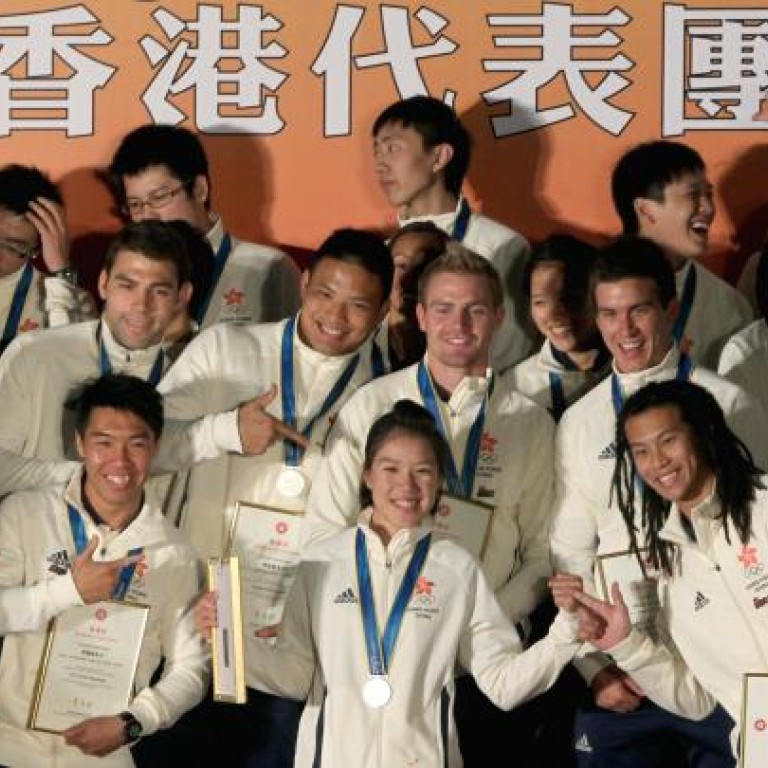
Left Field: Sport can unify Hong Kong
Now that national education is on the back burner, it's time for Hong Kong to look to sport as a unifying force
This past week has once again been a reminder of what a powerful force sport can be. I have been enjoying the cricket, the ICC World Twenty20, in Colombo, Sri Lanka, made all the better by the success of the host team, who are in today's final. Win or lose, Sri Lankans love to party.
The feel-good factor is plain to see. The cricketers are the talk of the town. People are decked out in the yellow and blue of the team. The night after the semi-final win over Pakistan saw the streets thronged with people waving flags. From the rich in their limousines to the poor in the tuk-tuks, they celebrated lustily. All this without the need for compulsory national education.
The closest I have seen to this dancing-in-the-street festivity at a Hong Kong sporting event was in 2009, during the East Asian Games, when the city's footballers defeated Japan to win the gold medal. That was perhaps the only time the people of Hong Kong came together as one, united in a common sporting cause. There were high hopes then that sport could provide the city with a common denominator and a unifying factor with Hong Kong thinking about bidding for the 2019 or 2023 Asian Games. That dream never materialised thanks to the blinkered view of our legislative councillors, who shot down the government's request for funds.
Yet, Hong Kong has been given another chance. The Olympic Council of Asia, which meets in Macau early next month, will vote only on the host city for the 2019 Games, leaving the 2023 decision for a later date - most probably in 2016. So there is time to re-think our approach. Sport, as proven only a few weeks ago in London, can provide a massive boost to a country.
Britain celebrated its best-ever Olympic gold medal haul and everyone, from the Bangladeshi immigrant serving chapattis in a restaurant to the prime minister at No 10 Downing Street was unified in a common cause. Can our legislators learn from this?
But back to the cricket. It was great to see a couple of well-known faces on Thursday as Sri Lanka held their nerve to pull off a sensational victory over Pakistan. Umar Akmal and Shahid Afridi, from Pakistan, and Lahiru Thirimanne and Jeevan Mendis, from Sri Lanka, have appeared at the Kowloon Cricket Club. The Pakistani duo were star turns at last year's Hong Kong Sixes, while Thirimanne and Mendis have been regulars in the past.
Last year, Sri Lanka fielded Thisara Perera and Dilshan Munaweera and both are now an integral part of the national team set-up, Perera in all forms of the game while the latter only in Twenty20.
It proves the importance of the Hong Kong Sixes which, while a mere blip on the international cricket radar, is still used as a breeding ground to blood youngsters by various national boards. We have seen David Warner in action for Australia, this well before he made his mark on the test stage, as well as a certain Mahendra Singh Dhoni. The year the India captain made his first appearance in Hong Kong, he grabbed the attention not for his batting, but for a rather slovenly demeanour - long hair, shirt out and black shoes.
But that ugly duckling has transformed into India's most marketable cricketer, although for how long we don't know as the knives are out following India's exit from the World Twenty20 in the Super Eights stage.
The failure of India at a big event is always greeted with much trepidation by organisers, who fear the absence of the most-valued team (for television) would devalue any tournament. This has been evident in Colombo, too. India's early departure to the airport has resulted in a spate of hotel bookings being cancelled. Tickets for the semi-finals and final suddenly became available as disgusted Indian fans decamped.
There is no question where cricket's economic power lies. While India's giant cricket industry has benefited the game, it has also been an inhibiting force. Just look at the Hong Kong Sixes: while every other national board sees fit to groom its up-and-coming youngsters while also throwing in a few big names, the Board of Control for Cricket in India (BCCI) now sends virtual unknowns to the tournament.
It is the same even on a bigger stage. At the 2010 Asian Games in Guangzhou, India were the only test-playing nation in the continent who were missing. Instead of trying to promote the sport, the BCCI, in a rift with the country's Olympic Committee, stayed away. Sport can be a great unifying force, but petty politicking can also make it a scourge.

